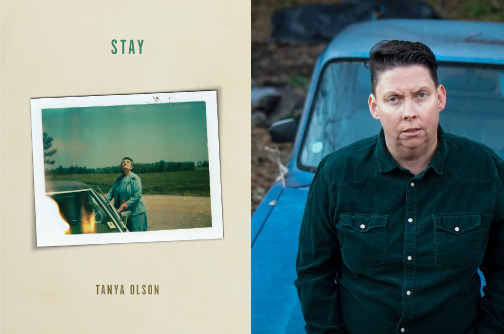Poet Tanya Olson reads at the Pratt Wednesday, September 25, with Jona Colson and Edgar Kunz.
Which writers inspire you?
When my first book came out, I did not want to have it blurbed—I find blurbs totally unhelpful. They don’t help me find new good books and let’s be honest; they are often a pack of lies. But YesYes Books asked me to think about who I thought of as my poetic family, which is a really helpful concept that I continue to cling to. So I think of my poetic family as Dorothea Lasky, CAConrad, and Susan Howe. Now, just like blood family, they don’t have any say in that and the feeling may not be mutual. But, also like blood family, they inspire me to write the poems I need in the way I need.
What’s the best advice about writing you’ve ever received?
Eloise Klein Healy gave me a lot it—when I was frustrated, felt like I was writing good poems but wasn’t getting anywhere with them—publications, books, readings—she noted my problem was I kept knocking on the front door of poetry’s house and poetry was never going to let me in the front door. But, she reminded me, there are lots of ways in the house and once you are in the house, it matters a little less how you got in. I’ve found that to be true. I didn’t come to poetry through what is now the traditional course—young, MFA, literary journals—so trying those ways of getting the door opened was frustrating. But, I snuck in and people do tend to forget that you didn’t walk in the usual way.
When did you write your first poem, and what was it about?
I came to poetry later than a lot of folks—I took a creative writing class as an undergraduate and liked it but didn’t feel particularly good at the three weeks we devoted to poetry. I started writing seriously when I was late 30s? Early 40s? I went to an art event regularly in Raleigh called Stammer! and saw several artists regularly there—Langston Fuze, Lisa McCool, Dasan Ahanu—that made me want to do what they did. I remember reading at an open mic there and being super nervous but have no memory of what I read.
Do you have any rituals or practices that help you write?
No. I usually follow the same pattern; I read, listen, and watch a ton of things that are related in some way to what I’m thinking about. I take notes and write scraps in a notebook during this. Then I become ready to write; I write a lot during this time. Some poems come out whole, others are partial. I start to think about how the poems will go together while I polish the finished and finish the unfinished. Poems are magic, but like most magic, making them is just hard work.
Imagine you get to take a writing workshop with any famous writer, living or dead. Whom do you pick?
Gertrude Stein and we are working on repetition. It’s one of my favorite toys to play with in a poem or a book and why not learn from the best.
Which poem by another poet do you most wish you had written yourself?
The list is long! One time at a reading we “swapped” poems and I got to read Ocean Vuong’s “Of Thee I Sing,” which is one of my favorites of his. I wish I could title like Aziza Barnes; “i could ask, but i think they use tweezers” is a great poem whose title works so hard. Layli Long Soldier’s Whereas is the smartest book I’ve read in a long time and by the time you get to “38,” that poem just knocks you down.
How did you choose the title of your new book?
I like one-word titles and titles that prepare you for the book. I kept thinking what it cost to leave a place, idea, identity and what it cost to remain in those same things. So Stay; I also like that it sounds like both a plea and a command.
Which of your poems do you most enjoy reading to an audience, and why?
There are a lot I love to experience an audience hearing; out of the new book “Other People Call It America” and “54 Prince” are two of my favorites to read aloud.
